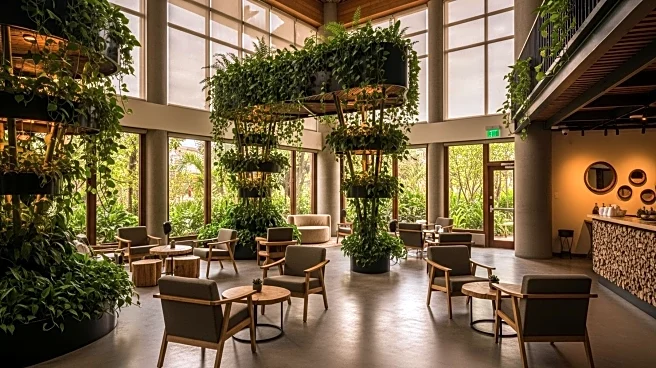What is the story about?
What's Happening?
Toby Kyle, Studio Director of Landscape at WATG, is recognized for his leadership in master planning, architecture, and landscape design, particularly within the tourism and hospitality sectors. With over 20 years of experience, Kyle has successfully led international design teams through various projects from conception to completion. His work is noted for integrating environmental and cultural sensitivity, aiming to foster a deep connection between the projects and their surroundings. Kyle's personal interest in human wellness influences his design approach, which seeks to create spaces that harmonize care for the planet with care for humans.
Why It's Important?
The significance of Toby Kyle's work lies in its potential impact on the hospitality industry, particularly in promoting sustainable and culturally sensitive design practices. As environmental concerns continue to rise globally, Kyle's approach offers a model for integrating ecological considerations into hospitality projects, potentially influencing industry standards. His focus on human wellness also aligns with growing consumer demand for spaces that promote health and well-being, which could lead to increased business opportunities and competitive advantages for companies adopting similar practices.
What's Next?
As WATG continues to develop projects under Toby Kyle's leadership, the firm may further establish itself as a leader in sustainable and culturally sensitive design within the hospitality industry. This could involve expanding their portfolio to include more projects that emphasize environmental stewardship and human wellness. Additionally, WATG's approach may inspire other firms to adopt similar practices, potentially leading to broader industry shifts towards sustainability and wellness-focused design.
Beyond the Headlines
Kyle's work highlights the ethical dimension of design in the hospitality industry, emphasizing the importance of creating spaces that respect and enhance their natural and cultural environments. This approach not only benefits the planet but also enriches the experiences of those who interact with these spaces, potentially leading to long-term shifts in how hospitality projects are conceived and executed.















